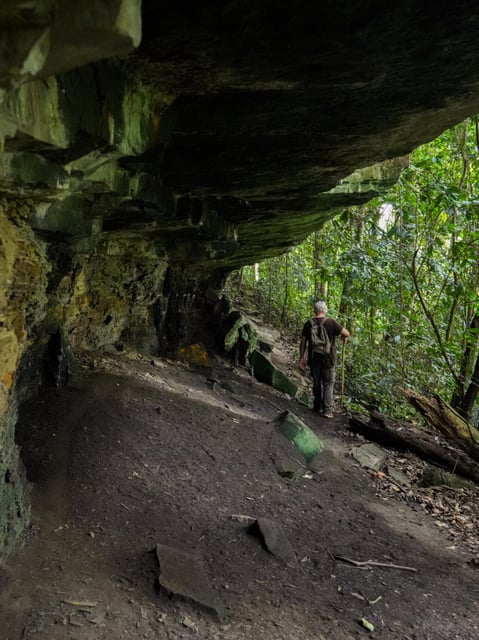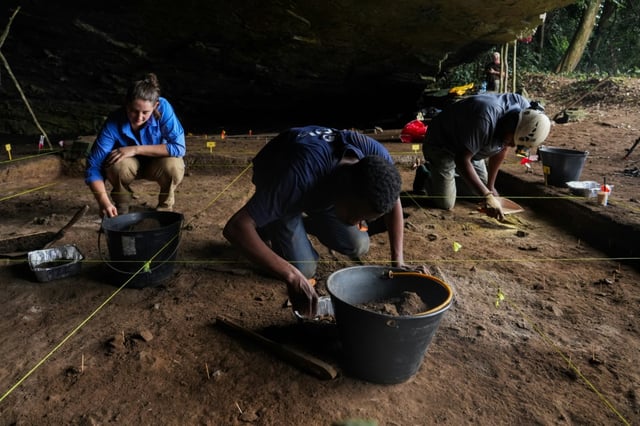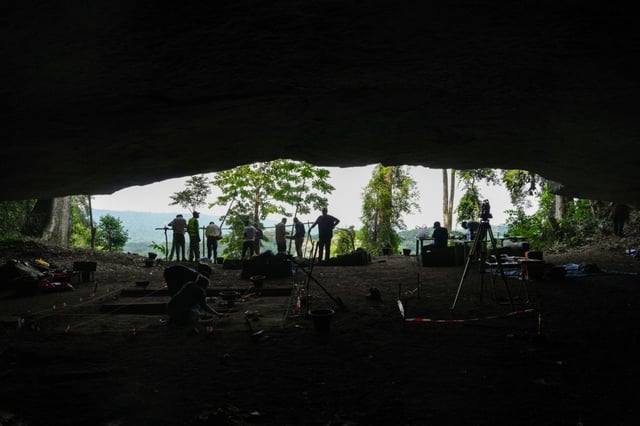Overview
- Geoarchaeologist Richard Oslisly’s team is excavating Youmbidi Cave in Gabon’s Lastourville region, where human occupation dates back to 25,000 BC with 12,000 years of continuous habitation.
- This season’s dig produced a pottery fragment over 6,500 years old, now recognized as the oldest pottery found in central Africa.
- Archaeologists unearthed snail-shell beads aged between 3,300 and 4,900 years, highlighting early social customs and decorative craft.
- Human-looking teeth suitable for DNA extraction were discovered, offering the potential for genetic insights into prehistoric forest communities.
- Scientists aim to use the cave’s layered record to understand how early groups adapted to dramatic Holocene shifts in climate, hydrology and vegetation.



